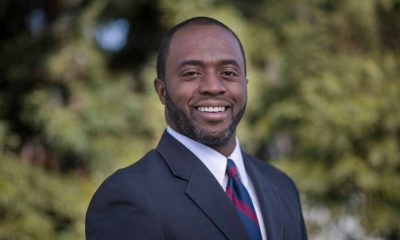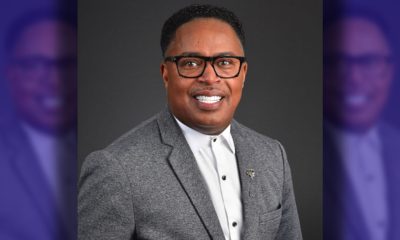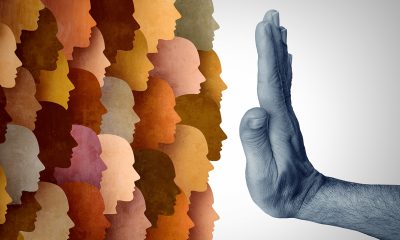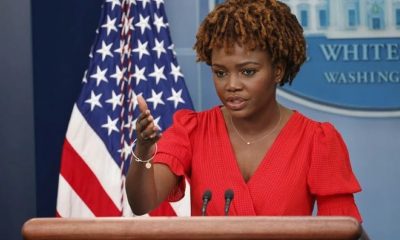Black History
COMMENTARY: Is Religious Freedom Free?
In 2019, a federal appeals court ruled that the school board in Washington State was correct when it fired Coach Joe Kennedy for praying publicly. A judge of the Ninth Circuit said, “A coach’s duty to serve as a good role model requires the coach to refrain from any manifestation of religious faith — even when the coach is plainly not on duty.” Where does freedom start and stop? Kennedy’s case has sparked controversy, landing in the Supreme Court this past week debating just how far can a person express religious freedom in public spaces.
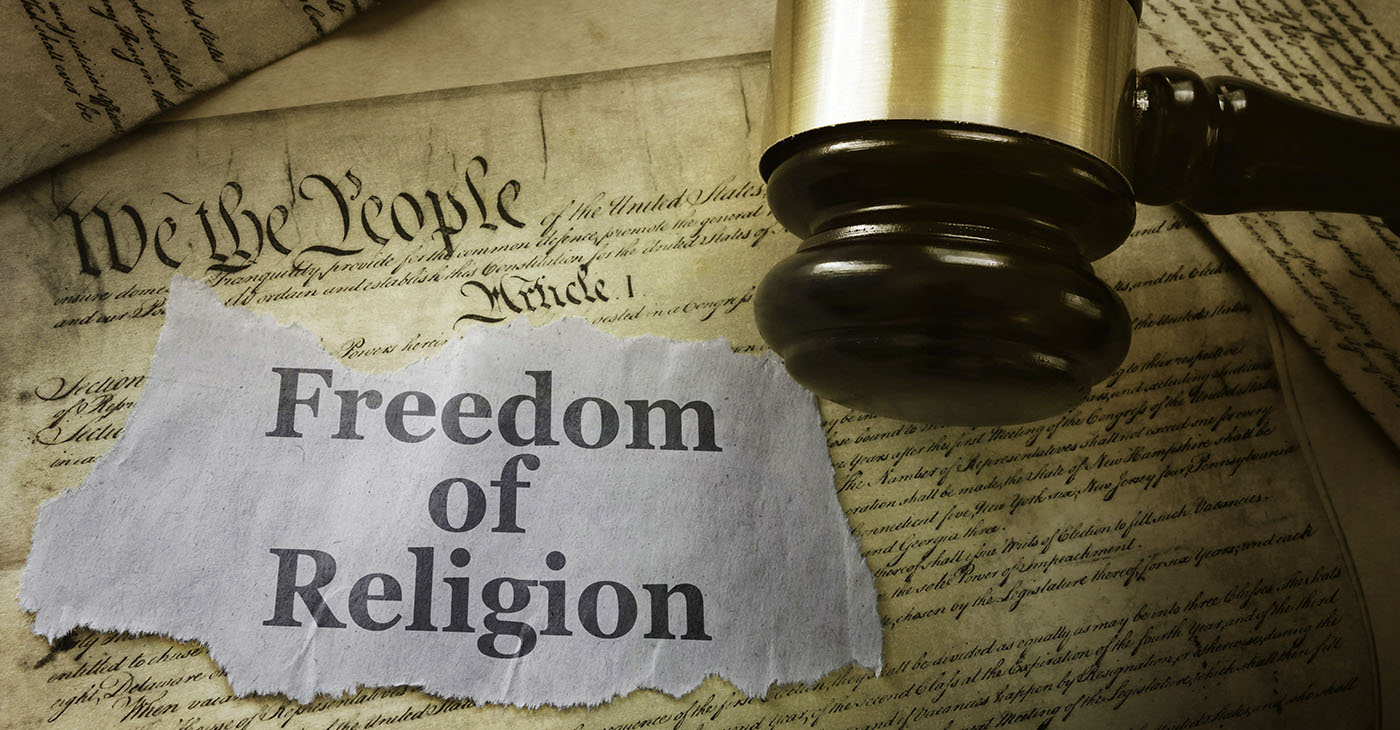
By Rev. Dr. Martha C. Taylor, The Oakland Post
The late Fannie Lou Hamer said, “If I am truly free, who can tell me how much of my freedom I can have today?” That is the question that The United States Supreme Court wrestled with last week in the case of Joe Kennedy, who was fired by the school board in Washington State for praying at the 50-yard line after the high school football game ended.
Kennedy defended his position saying the school board violated his rights to free speech and the freedom to exercise his religion. Kennedy, a Christian, said he felt compelled to give thanks through a silent prayer at the conclusion of each game.
In 2019, a federal appeals court ruled that the school board in Washington State was correct when it fired Coach Joe Kennedy for praying publicly. A judge of the Ninth Circuit said, “A coach’s duty to serve as a good role model requires the coach to refrain from any manifestation of religious faith — even when the coach is plainly not on duty.”
Where does freedom start and stop? Kennedy’s case has sparked controversy, landing in the Supreme Court this past week debating just how far can a person express religious freedom in public spaces.
On June 25, 1962, the Supreme Court decided that praying in schools violated the First Amendment by constituting an establishment of religion. The following year, the Court disallowed Bible readings in public schools for similar reasons.
Long before the Supreme Court’s ruling in 1962 and the current Kennedy case, we are reminded of a very dark period in U.S. history; it was legal that enslaved Africans were forbidden to express religious freedom in any form including reading, writing and praying.
The late Dr. Albert J. Raboteau, an African American scholar, gave meaning to what Africans had to endure to worship. The hush harbors, known as the invisible church, was a secret worship place built with tree branches in the deep woods out of ear shot and eyesight of slave masters. The secret call to worship used codes. One such code was the spiritual, “Steal Away to Jesus.” If enslaved Africans were caught worshiping, they were subjected to vicious beatings or could be murdered for exercising religious freedom.
During the secret worship, the African preacher sermonized how God delivered the Hebrews from slavery to freedom. The ancestors believed and trusted that the same God who told Moses to go down in Egypt land and let my people go was the same God that was going to set them free. The enslaved Africans practiced their African rituals knowing the spirit of the ancestors was with them, encouraging them, that slavery was not their destiny. C. Eric Lincoln reminded us in the epic book “The Black Church in the African American Experience,” that “The term ‘freedom’ has found a deep religious resonance in the lives and hopes of African Americans.”
Colin Kaepernick refused to stand for the Star-Spangled Banner, National Anthem. He said he did so to protest police shootings of African American men and other social injustices faced by Black people in the United States. The Star-Spangled Banner is a lyrical prayer – “and this be our motto, “In God we trust.”
Kaepernick was punished for expressing his freedom by refusing to engage in what he sees as hypocrisy. Is it time for a new national anthem? Near the Rotunda of the Capitol, a room is set apart for prayer. In light of the controversy, should the prayer room be removed? In 2009, I gave the opening prayer as a Guest Chaplain for the U.S. House of Representatives that was aired on CNN and other networks.
Is the opening prayer possibly up for elimination? On April 17, 1952, President Harry Truman signed a bill proclaiming the National Day of Prayer into law in the United States. Will it be reversed? Tim Tebow often knelt and prayed at football games. Steph Curry has a line of tennis shoes with a biblical scripture, “I can do all things…”
Ms. Hamer raised a critical inquiry, how much of my freedom can I have today? Are you willing to contend for your faith?
Activism
S.F. Black Leaders Rally to Protest, Discuss ‘Epidemic’ of Racial Slurs Against Black Students in SF Public School System
Parents at the meeting spoke of their children as no longer feeling safe in school because of bullying and discrimination. Parents also said that reported incidents such as racial slurs and intimidation are not dealt with to their satisfaction and feel ignored.

By Carla Thomas
San Francisco’s Third Baptist Church hosted a rally and meeting Sunday to discuss hatred toward African American students of the San Francisco Unified School District (SFUSD).
Rev. Amos C. Brown, president of the San Francisco NAACP and pastor of Third Baptist Church, along with leadership from local civil rights groups, the city’s faith-based community and Black community leadership convened at the church.
“There has been an epidemic of racial slurs and mistreatment of Black children in our public schools in the city,” said Brown. “This will not be tolerated.”
According to civil rights advocate Mattie Scott, students from elementary to high school have reported an extraordinary amount of racial slurs directed at them.
“There is a surge of overt racism in the schools, and our children should not be subjected to this,” said Scott. “Students are in school to learn, develop, and grow, not be hated on,” said Scott. “The parents of the children feel they have not received the support necessary to protect their children.”
Attendees were briefed last Friday in a meeting with SFUSD Superintendent Dr. Matt Wayne.
SFUSD states that their policies protect children and they are not at liberty to publicly discuss the issues to protect the children’s privacy.
Parents at the meeting spoke of their children as no longer feeling safe in school because of bullying and discrimination. Parents also said that reported incidents such as racial slurs and intimidation are not dealt with to their satisfaction and feel ignored.
Some parents said they have removed their students from school while other parents and community leaders called on the removal of the SFUSD superintendent, the firing of certain school principals and the need for more supportive school board members.
Community advocates discussed boycotting the schools and creating Freedom Schools led by Black leaders and educators, reassuring parents that their child’s wellbeing and education are the highest priority and youth are not to be disrupted by racism or policies that don’t support them.
Virginia Marshall, chair of the San Francisco NAACP’s education committee, offered encouragement to the parents and students in attendance while also announcing an upcoming May 14 school board meeting to demand accountability over their mistreatment.
“I’m urging anyone that cares about our students to pack the May 14 school board meeting,” said Marshall.
This resource was supported in whole or in part by funding provided by the State of California, administered by the California State Library via California Black Media as part of the Stop the Hate Program. The program is supported by partnership with California Department of Social Services and the California Commission on Asian and Pacific Islander American Affairs as part of the Stop the Hate program. To report a hate incident or hate crime and get support, go to CA vs Hate.
Activism
Oakland Post: Week of May 1 – 7, 2024
The printed Weekly Edition of the Oakland Post: Week of May 1 – 7, 2024

To enlarge your view of this issue, use the slider, magnifying glass icon or full page icon in the lower right corner of the browser window. ![]()
Activism
Oakland Post: Week of April 24 – 30, 2024
The printed Weekly Edition of the Oakland Post: Week of April 24 – 30, 2024

To enlarge your view of this issue, use the slider, magnifying glass icon or full page icon in the lower right corner of the browser window. ![]()
-

 Community3 weeks ago
Community3 weeks agoFinancial Assistance Bill for Descendants of Enslaved Persons to Help Them Purchase, Own, or Maintain a Home
-

 Business3 weeks ago
Business3 weeks agoV.P. Kamala Harris: Americans With Criminal Records Will Soon Be Eligible for SBA Loans
-

 Activism3 weeks ago
Activism3 weeks agoOakland Post: Week of April 10 – 16, 2024
-

 Community3 weeks ago
Community3 weeks agoAG Bonta Says Oakland School Leaders Should Comply with State Laws to Avoid ‘Disparate Harm’ When Closing or Merging Schools
-

 Community2 weeks ago
Community2 weeks agoRichmond Nonprofit Helps Ex-Felons Get Back on Their Feet
-

 Community2 weeks ago
Community2 weeks agoOakland WNBA Player to be Inducted Into Hall of Fame
-

 Community2 weeks ago
Community2 weeks agoRPAL to Rename Technology Center for Retired Police Captain Arthur Lee Johnson
-

 Activism1 week ago
Activism1 week agoOakland Post: Week of April 24 – 30, 2024

